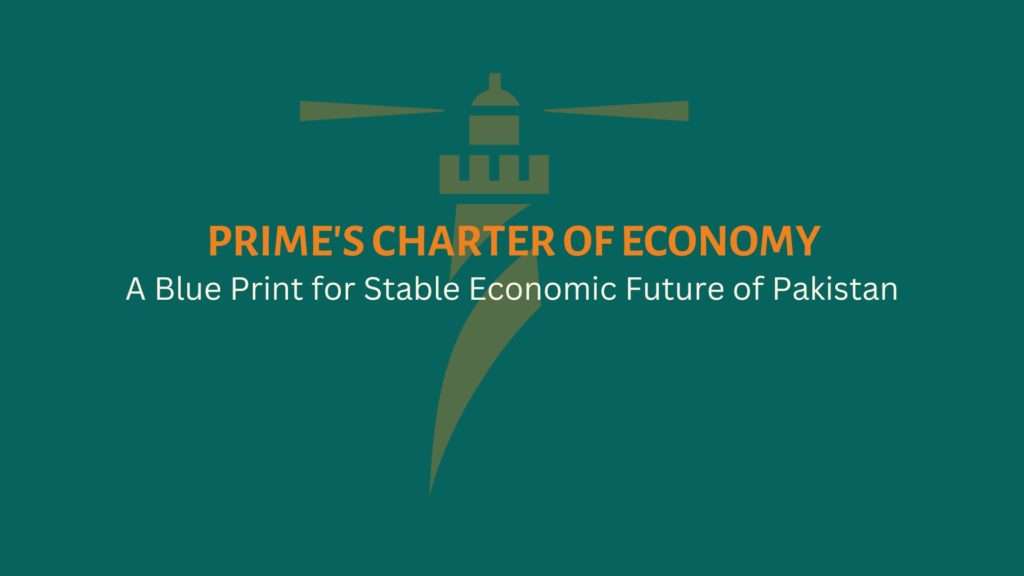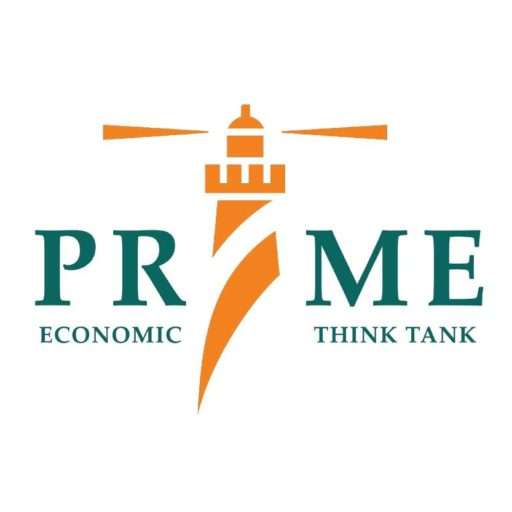PRIME'S Charter of economy: a blueprint for Prosperous economic future of pakistan

Introduction
In the past, prime ministers and Federal cabinet
members under threat of losing popularity
mobilize public resources and manipulate
economic resources using policy tools. Pre election populist spending stimulates consumer
demand, and disproportionately increases
import spending, throwing the current account
balance into unsustainable deficit levels.
Because the highest import spending of the
country is made on petroleum imports, and the
government has a near monopoly on these
imports, the government runs out of dollars to
continue import purchases.
Broad scale controls are activated in favor of
slowing down international trade. When imports
are choked out, it stresses that portion of the
export sector which is in the business of
processing imported goods or finishing imported
raw materials.
All this occurs in the hope that multilateral
financing institutions come to the rescue.
Inevitably, the result is expensive petroleum,
higher taxes, higher inflation, and shortages of
essentials. This throws off existing economic
relationships between private players
influencing the viability of exchanges in
unpredictable ways.
Additionally, political parties have been involved
in blocking off civic infrastructure, and greatly
affecting the lives and businesses of private
citizens. Economic players cannot function
optimally when access to economic capital
frequently become unavailable.
Charter of Economy



